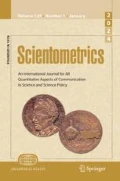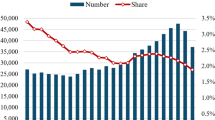Abstract
The population of Iran has nearly doubled in less than 25 years, while the number of university students has increased more than 10 times and 720 Ph. D. degrees have been awarded in basic science in the past 10 years. Despite the great difficulties that the Iranian scientists have been facing for more than two decades (as a consequence of a social revolution, 8 years of a destructive war imposed by Iraq, excessive brain drain, discriminatory practices by some international journals in publishing the Iranian articles, and unfair sanctions imposed by the industrialized countries) Iran's science is still thriving and the current number of yearly scientific publications exceeds 1500. When normalized with respect to the number of researchers and the research budget, the Iranian scientists seem to outperform most of their counterparts in the advanced industrialized nations. Main reason: total engagement in truncated research activities (basic or applied) leading solely to pure publications; lack of infrastructure for developmental research activities leading to new technologies. The average impact factor of the papers in various fields of basic science seems quite satisfactory considering the difficult conditions the Iranian scientists are working under. Should the research budgets and conditions improve and the unfair sanctions currently imposed by the world politics be eliminated, a far better contribution to the world science can be expected.
Similar content being viewed by others
References
M. N. SARBOLUKI, M. MEHRDAD. A. HEYDARI, Iran Daily, 9th Mordad, p. 9, 1380, (2001); Hamshahri Daily, 11th Day, p. 15, 1380, (2001); Hamshahri Daily, 12th Day, p. 23, 1380, (2001).
D. N. RAHNI, Economic sanction go too far, Chemical & Engineering News, 81 (50) (2003) 2. W. G. SCHULZ, Securing human rights: Network of scientists and scientific societies are poised to come to the aid of imperiled colleagues, Chemical & Engineering News, 81 (47) (2003) 21.24.
INSTITUTE FOR SCIENTIFIC INFORMATION, Web of Knowledge (http:// access.isiproducts.com/trials).
INSTITUTE FOR SCIENTIFIC INFORMATION, National Science Indicators, Deluxe on Diskette, The Institute for Scientific Information, Philadelphia, 2001.
INSTITUTE FOR SCIENTIFIC INFORMATION, Journal Citation Reports, Science Edition. The Institute for Scientific Information, Philadelphia, 2001.
Author information
Authors and Affiliations
Corresponding author
Rights and permissions
About this article
Cite this article
Mehrdad, M., Heydari, A., Sarbolouki, M.N. et al. Basic science in the Islamic Republic of Iran. Scientometrics 61, 79–80 (2004). https://doi.org/10.1023/B:SCIE.0000037364.65282.4d
Issue Date:
DOI: https://doi.org/10.1023/B:SCIE.0000037364.65282.4d



